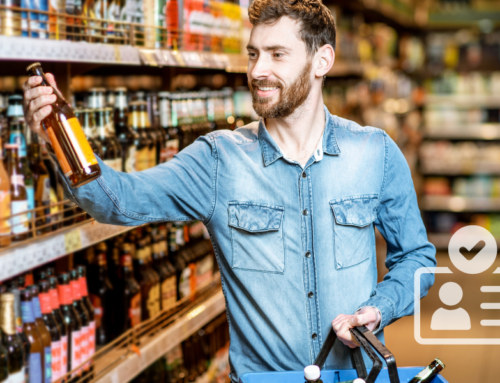Author
Tommy Chapman
Share
Lessons we can all learn from the UK’s most trusted retailers
During the early days of the pandemic, consumers adopted a very different attitude towards retailers almost overnight. Suddenly trusted brands were put to one side as consumers purchased from anywhere they could as supply chains were rattled and in some cases, brought to a complete halt.
However, as supply has returned to normal (although still affected by chip shortages, Brexit, HGV driver shortages and other issues) it seems that the value placed on trust is making a comeback. Recent research completed by the Digital Trust Index shows that 85% of consumers are less likely to purchase from a retailer they don’t trust, so consumer confidence is key as retailers face stiff competition during the economic recovery.
Consumers don’t want to be told to trust a brand, trust is earned and they will decide who to trust.
Claire Pointon, Customer Director at John Lewis
Those who survived the pandemic relatively unscathed are largely those who recognised the importance of omnichannel retail early on, and had the infrastructure in place to offer an excellent online shopping experience. Retailers who had the funds and capability to move online quickly have also thrived although there are a few exceptions who have no plans to move into eCommerce (think Primark!). As e-tail continues to grow, so do opportunities for loss of trust if mistakes are made. Take for example delayed deliveries and shipping errors, returns and refund issues and security breaches. While these are problems reserved for the online retailer, there is still sufficient opportunity to lose trust among customers for the traditional bricks and mortar retailer.
So, how can you build trust in your brand and what elements of your business do customers value most? We’ll take a look at lessons that can be learned from the biggest retailers in the UK.
Next
Next is known for the quality of their clothing, as well as their online offering. Now the UK’s largest online clothing retailer, they offer a seamless omnichannel experience. A new feature in 2020 was the hosting of other brands on their online marketplace, helping them to survive the pandemic with a premium online store experience.
Tesco
Tesco is known for its value and reliability. They have also earned a reputation for their response to the pandemic, doubling their delivery slots, increasing their community support through food donations and ensuring that customers could get essentials when stocks were low.
John Lewis
Synonymous with quality and offering exceptional service, John Lewis is also well respected for their co-operative profit share structure. They too responded to the pandemic by increasing capacity and offering a new range of virtual services.
Co-op
Co-op is known for their local suppliers and its membership offering. An ethical brand, Co-op stores support their community with local initiatives, events and donations.
Marks & Spencer
A long-standing British brand with unrivalled provenance, Marks & Spencer are respected for their commitment to quality and their longevity. Known for the excellent relationships they build with suppliers, the brand safeguarded their clothing manufacturers during the pandemic through additional financial support.
Amazon
Amazon reigns as the king of efficiency and quick delivery. Their range of products is unrivalled and their reputation for reliability means it’s a firm favourite across every age group and demographic of shopper.
Sainsbury’s
Known for high quality products, Sainsbury’s has earned a reputation for looking after their employees, rewarding them with bonuses and pay rises to recognise their service during the pandemic. They also offered a priority delivery service to their most vulnerable customers throughout 2020/21.
Asos
Asos is loved for their quick returns and no quibble refunds. They have also moved to sustainable packaging to reduce the environmental impact of their products and announced a 13% reduction in their carbon footprint in 2020.
Morrisons
Morrisons takes a different approach to the supply chain than most and produce more of their own food products than any other supermarket. They were also the first to pay a minimum of £10 per hour to their employees and to remove plastic bags from their stores. One recent innovation is to offer quiet shopping times for those with sensory difficulties where the lights are dimmed and background music is turned off.
Primark
Primark is synonymous with value and are counteracting the negative connotations associated with fast fashion with the launch of their sustainable recycled clothing lines. Primark do not sell online which is why customers cited it as the shop they were most looking forward to visiting post lockdown.
eBay
eBay is a trusted marketplace, with excellent protections for sellers and buyers alike. Their eBay for Change programme supports community organisations in disadvantaged areas around the UK.
New Look
New Look is known for their low prices and quality of clothing and accessories. Often found in small local high streets, where their competitors are nowhere to be seen, the accessibility of New Look has enabled a return to profitability thanks to the easing of lockdown restrictions.
While your retail operation may not be on the scale of the examples discussed, they offer some interesting insights into what strikes a chord with consumers . Here are 5 top tips that will help you to become a trusted brand:
- Customer service is key – Offering unparalleled service is the single most important thing you can do to build trust. Remember, if a customer receives a great service, they may tell one or two people. If they receive terrible service they will tell everyone they know!
- Be consistent – The cornerstone of any brand is consistency. If your customers’ expectations are not met, they will lose faith in your brand.
- Be quick to make amends – As the saying goes, to err is human. We all make mistakes but the mark of a strong brand is being honest about errors and putting them right immediately.
- Demonstrate your values – If all your suppliers are local then shout about it! If you’re an eco-friendly brand, make it known! If you have strong values and you’re not demonstrating them to your customers, then you’re missing an opportunity.
- Offer a seamless experience – If you’re operating a bricks and clicks model, make sure the customer experience is seamless. Any gaps in your service or products will raise questions and undermine trust.
If you’re struggling to offer your customers the level of service they expect, you should take a detailed look at your retail management solution. Whether your difficulties involve stock management, the point of sale experience, juggling online and physical sales or any other aspect of your retail business, RMS can help. Give our friendly team a call on 0800 138 0050 for free confidential advice.
Key Terms
Share:
Sign up now for news and special offers!
Join our Newsletter
*We are collecting your email information in order to add you to our newsletter recipient list. You can unsubscribe from our communications at any time. You can do this by contacting us or by clicking the unsubscribe button on any of our communications with you.
You can find more information about the details we hold about you and the way we use them in our privacy policy, and you can access this here or we can send you a copy.




